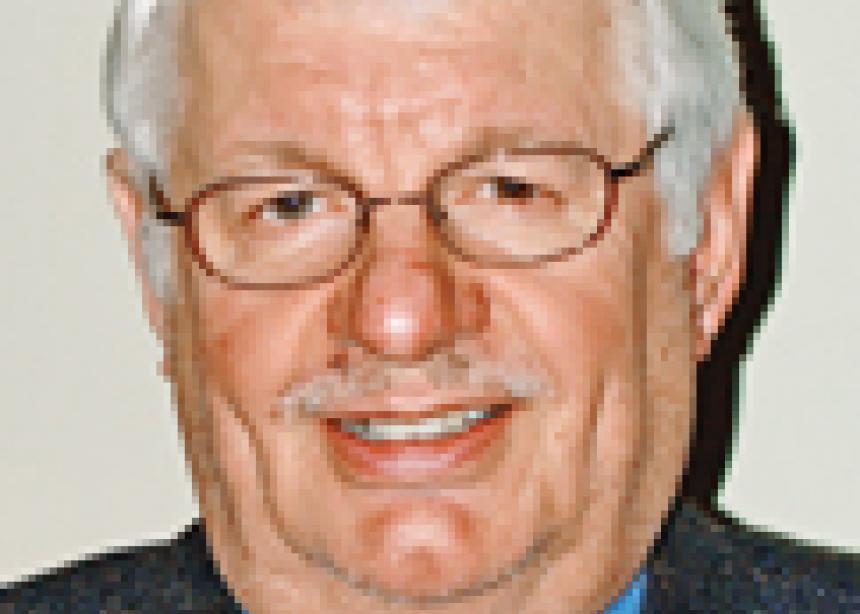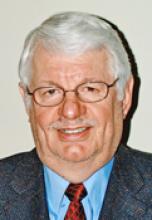Stuart Murray, the “outsider” Anabaptist, is making his rounds in our circles with his book The Naked Anabaptist and Richard Rohr, the Franciscan priest, is making his way into our book studies and religious consciousness with his newest book The Naked Now.
What is it about nakedness that suddenly commands our attention, this unmasking of our religious life and practice that has us taking inventory of our core beliefs, the way we have done “church,” a kind of undressing that feels like getting ready for a bath, a cleansing?
Murray, with speaking engagements across Canada this spring and summer, had his epiphany with Anabaptism as a British Baptist. While admiring our historic engagement with the gospel and uniquely putting Jesus’ commands above Caesar’s, he asserts that over 500 years we have veered off-course and need to be called back to what he calls our seven core convictions.
Today, he says early in his book, “many Mennonites seem more interested in purpose-driven churches or the Alpha course,” than responding to the “rehabilitated Anabaptism” quest on which many of our Mennonite scholars have embarked. His message at our gatherings will no doubt invite us back to the wisdom of our historic beliefs and stance that he claims is the answer to much of the religious turmoil in our modern world.
Rohr, while not calling us by name, sounds similar themes in his call, as a Christian mystic, by listening for and seeking out “a deeper voice of God,” a kind of deep calling unto deep in the present, not in our historic past, not in religious routines and order, but in a kind of new discovery of God at work in every aspect of our lives—whether that be joy, pain, disorder and disappointment or ecstasy and elation.
This new journey, which he simply calls presence, is experienced as “a moment of deep inner connection, always pulling you, intensely satisfied into the naked and undefended now, which can involve both profound joy and profound sadness.” At that point, he writes, “you either want to write poetry, pray or be utterly silent.”
Both of these sages, like the parables and messages of Jesus, given “not to destroy the law, but to fulfil it,” are not necessarily tearing down religious structures and beliefs that have been so carefully built and lived over centuries, but rather they are issuing a call to rehabilitate and refresh tired ways to breath new life and dynamism into our spirits.
Rohr, of course, goes further, calling what he sees as a religious crisis of the Western world. Having lost our “wisdom,” he claims it is “very difficult for churches, governments and leaders to move beyond ego, for the desire for control and public posturing. Everything divides into oppositions such as liberal vs. conservative, with vested interests pulling against one another. Truth is no longer possible at this level of conversation. Even theology becomes more a quest for power than a search for God and Mystery.”
Ouch!
Another sacred cow Murray might chide us on is our newfound purpose in justice and ethics in a world we perceive has lost its way on both counts. Many of us are passionate about global warming, for instance, and have made a mission of “creation care” and working at development as global poverty and war take a bigger and bigger toll.
These are worthy goals and we shouldn’t diminish our enthusiasm for them in the least. But we need to listen to Murray when he observes “a persistent danger within the Anabaptist tradition has been for ethics to trump spirituality, so that discipleship is detached from the realm of grace.”
Rohr echoes these sentiments when observing that “a large percentage of religious people become and remain rigid thinkers because their religion taught them that to be faithful, obedient and stalwart in the ways of God, they had to create order.”
Both Rohr and Murray invite us not to give up our passions for mercy and justice, for “healing and hope,” but to bathe these in the knowledge that God was there long before we got there, that ours mostly is the task of discovering these hidden God corners and God moments.
As “naked Anabaptists” we are being asked to walk boldly into the “naked now,” a divine gift, as Rohr would call it.
See also:
Exposing the ‘bare essentials’ of Anabaptism (an interview with Stuart Murray)
To ‘clothed’ Anabaptists (an editorial)
Anabaptism provides a map in the post-Christendom wilderness (a foreword by Gregory Boyd)
Join ‘Naked Anabaptists’ on Facebook



Add new comment
Canadian Mennonite invites comments and encourages constructive discussion about our content. Actual full names (first and last) are required. Comments are moderated and may be edited. They will not appear online until approved and will be posted during business hours. Some comments may be reproduced in print.